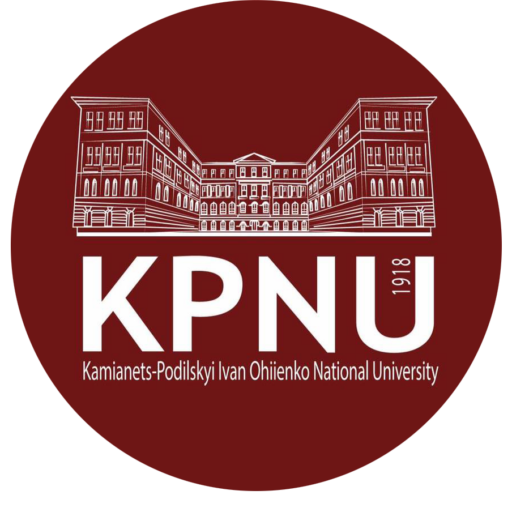Serhii Nakonechnyi
(Dopravná služba a logistika, Žilinská univerzita v Žiline)
Scholarly supervisor: Alla Marchyshyna, Doctor of Philology
THE CONCEPT DEMOCRACY IN AMERICAN POLITICAL DISCOURSE
The paper aims at establishing the semantics and pragmatics of “democracy” as a core of the concept with the identical name realized in the contemporary American political discourse. This article deals with political domain of language interference.
Society is a dominant component of each political regime. In totalitarian system, it acts as recipient of ideology and the mechanism for achievement of result by elite, in democratic organization it becomes a source of political authority and supporter of state functioning.
The American implication of democracy is quite diversified. The generally acknowledged understanding follows the assumption that democracy represents institutional arrangements to secure rule of law, participation of the people in the activities of the state, and, the institutional embodiment of a concern with the identification and realization of public interest [3]. On the contrary, one of the most sensational facts is the negative associating attitude of a large number of citizens. Reception of this nonconformist American category regards democracy as corruption, bribery, vote rigging, apathy, greed, inequitable, self-serving and purchasing.
An oppositional idea is concretized around positive absorption of investigating concept. Numerous researchers emphasize advantages of democracy. In this classification figurate such words as flexibility, gratefulness, generosity, sociability, prudence, trust, respect, adaptability, effectiveness, which assign this concept a part to be the best form of socio-political organization. Democracy does not always offer a cooperative system but the one it facilitates is competitive though the “actual competitive environment of globalised world is exceedingly aggressive” [5]. In a democracy, the elected representatives are expected to function in the interest of the majority of the people. That is why democracies most often “produce” champions, leaders that long for prosperity and overall well-being.
At the same time, many considerations concern democracy risks in relations between ruling elite and society. Here, semantic ideas are expressed by the word “balance”. In the list of different associations that concern democracy, the core is comprehended as cooperation. Contemporary public opinion in the USA is satisfied if civic involvement and cooperative behaviour come to the foreground. According to Booth, “Democracy would not be fulfilled by the ability to participate, but would be expressed by the freedom to vote” [2]. In the USA, where ideals of individual independence occupy a dominant place in state building, democracy serves the environment for individual freedom and the means and ways of its expression. Personal freedom is achieved through electoral democracy and judicial independence [1].
Americans associate democracy with powerful government, it is quite normal to criticize the government. That fact calls competence of civil society to perform a direct public dialogue with Government concerning collective formation of a state political course in question. In this case, all civil activity is rendered down to common participation in elections. American citizens compare democracy with cooperation displayed in balance between governing institute and society, fair relied upon equality and wealth supported by the apparatus of justice.
Language conceptualizes surrounding reality, including political domain, and mental associations of society concerning the concept democracy which shed lights on opportunity of existence in national conditions and attitude of people to this regime.
American society apprehends democracy as conscious cooperation between government and society which is based on justice, balance and equality in rights. American linguist J. Howe investigated appearance of American democracy and formulated idea of language domination in formation of functional regime [4, р. 3-10]. Communicative processes and printed discourse brought along liberal organization of social relation and attainment of common independence and individual freedom. On the other hand, M. Warner delineates the cultural transformation of printed discourse from a rhetoric of personal representation intended for an elite to an impersonal rhetoric of public representation conceived for an indefinite audience of readers and intended to promote the public supervision of the civic realm – Warner traces back these processes as far as two hundred years ago and connects the development of print technology and the development of an 18th-century political consciousness [6]. This statement can be interpreted ambivalently. Involvement of society in free political communication is an advantage of democracy, but majority of people use political terms without proper understanding of its inner meaning.
Overall, democracy is a concept with multiple meanings. On the one hand, it tends to favour personal freedom and allows people to make the choices they want without being dominated by others. On the other hand, it implies limitation of personal rights for the sake of the general order and institutional government. The balance and correlation between these results in democracy as a dynamic process open for improvements and alterations.
REFERENCES
- Berggren N., Gutmann J. Securing personal freedom through institutions: the role of electoral democracy and judicial independence. European Journal of Law and Economics. URL : https://www.ifn.se/media/sajbanzw/2020-berggren-gutemann-securing-personal-freedom-through-institutions.pdf
- Booth Ph. Community, Cooperation and Metropolitan Democracy. Dans Pôle Sud. 2010/1 (32). P. 25– URL: https://www.cairn.info/revue-pole-sud-2010-1-page-25.htm
- Doig A. In the State We Trust? Democratisation, Corruption and Development. In A. Doig & R. Theobald (Eds.), Corruption and Democratisation, 2000. London: Frank Cass. P. 13–36.
- Howe J. Language and Political Meaning in Revolutionary America. University of Massachusetts Press, 2009. 296 p.
- Jossa B. A Few Advantages of Economic Democracy. Studi Economici. 2011,URL: https://www.researchgate.net/publication/227435794_A_Few_Advantages_of_Economic_Democracy
- Warner M.The letters of the Republic: Publication and the public sphere in eighteenth-century America. Cambridge, MA: Harvard University Press. 1990. 224 p.
